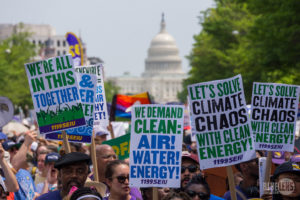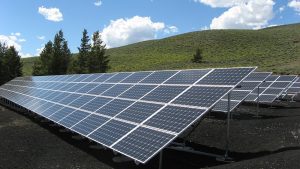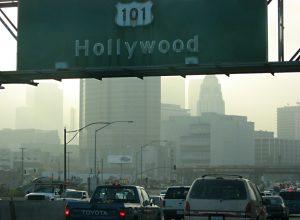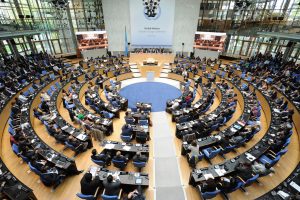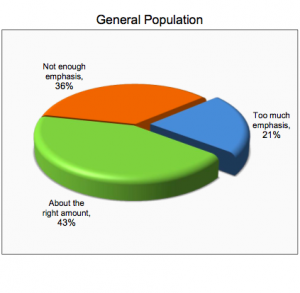8 item(s) were returned.
Center for Strategic and International Studies
Senior Vice President; Director and Senior Fellow, Energy and National Security Program
The Green New Deal resolution was released in the House of Representatives by Representative Alexandria Ocasio-Cortez (D-NY) on February 7, 2019, with a companion measure introduced in the Senate by Senator Ed Markey (D-MA). The Green New Deal (GND) is a powerful idea that is reshaping the conversation in Washington about how to tackle the issue of climate change. How is it doing this? By tying it to a set of concepts and policies that are about alleviating economic insecurity, the most potent political force of our time. By likening itself to Franklin Delano Roosevelt’s New Deal that came… [more]
View InsightCofounder
Spark Library
In January, Pacific Gas and Electric (PG&E), California’s largest utility, declared and subsequently filed for bankruptcy as a result of incurring as much as $30 billion in potential liabilities from transmission-caused wildfires in 2017 and 2018. The utility faces over 1,000 lawsuits and may be unable to completely handle its liabilities, possibly requiring significant state intervention. This raises critical questions about utility operations and business, and what policies are necessary to assess liability in an era of growing climate risks. Liability for each fire is determined by California’s Department of Forestry and Fire Prevention on a case-by-case basis. Under California’s… [more]
View InsightDirector of International Public Policy and Advocacy
Global Innovation Policy Center, U.S. Chamber of Commerce
It’s hard to overstate the growing importance of natural gas in the global energy marketplace, and the scale and mood of June’s World Gas Conference in Washington DC bore witness to the resurgent confidence of the global gas industry. With over two thousand delegates and 300 companies exhibiting in the hall, the conference reflected an industry that feels positive about its future and willing to address issues such as fugitive emissions. In 2011, the International Energy Agency talked about a potential “Golden Age of gas”. That suggestion attracted some derision at the time, as the flattening costs of renewables and… [more]
View InsightResearch Manager
The Center for Growth and Opportunity at Utah State University
Renewable portfolio standards (RPS) require a certain percentage of the electricity sold by utilities to be from qualifying sources as determined by state statute. RPS are one of the most common state-level environmental policies; 29 states and Washington DC have mandatory standards. Despite their popularity, however, renewable portfolio standards may not achieve their environmental ends in a cost-effective manner. Basic analysis of the effects of implementing RPS shows only a nominal impact on carbon emissions, but a large impact on electricity prices. Professors at Louisiana State University compared states that had enacted RPS to states that had not, and showed… [more]
View InsightSenior Fellow in Energy and Environmental Policy
Competitive Enterprise Institute
On Monday, Environmental Protection Agency (EPA) administrator Scott Pruitt announced that the Obama EPA’s greenhouse gas emission (GHG) standards for model year 2022-2025 cars and light trucks will be reconsidered by the agency. Critics have pointed out that the stringent Obama era CAFE standards, peaking at 54.5 MPG in 2025, are too strict and potentially price millions of Americans out of the market for new cars while also failing to have a meaningful impact on GHG levels. Unlike other emissions from motor vehicles, CO2 is not an air contaminant. Yes, it is a greenhouse gas, but so is water… [more]
View InsightConsultant
Independent
The United States and world are facing a crisis of enormous magnitude if the global warming problem is not addressed properly. Every country in the world, except the current U.S. administration, supports the Paris climate agreement goal limiting the rise in global average surface temperature to 2°C (3.6°F). The consequences of failure could be a catastrophic future: Flooding from rising sea levels, more severe hurricanes/heat waves/wildfires, crop failures and droughts, and greater stress on an already aging infrastructure. Climate scientists generally agree carbon emissions should be reduced to near zero by mid-century to avert catastrophic global warming. But the voluntary… [more]
View InsightManaging Director
The Roda Group
Climate change poses a threat to the safety and prosperity of America’s and the world’s citizens. Every major scientific academy agrees that global warming is real, is mostly caused by humans, and requires urgent action. The signs of climate change are all around us. For example, the volume of the summer Arctic sea ice has dropped about 70% in the past 30 years and global temperatures have set records for the past 3 years in a row. And while most world leaders and climate scientists agree that we should not let the world warm more than +2ºC, we are on… [more]
View InsightA recently released report by VeraQuest Inc. titled “VeraGreen: A Look at American Attitudes and Behaviors on Environmental Issues,” examines how Americans view environmental issues such as global warming and the involvement of government in the private sector. The report surveyed a stratified random sample of 3,506 online respondents to be nationally representative and has an error range of 1.66% at a 95% confidence level. The study was fielded between October 3 and October 11, 2012. Key Findings: 36% of respondents believe society does not put enough emphasis on environmental issues, compared to 21% that believe it’s too much emphasis. 51%… [more]
View Insight